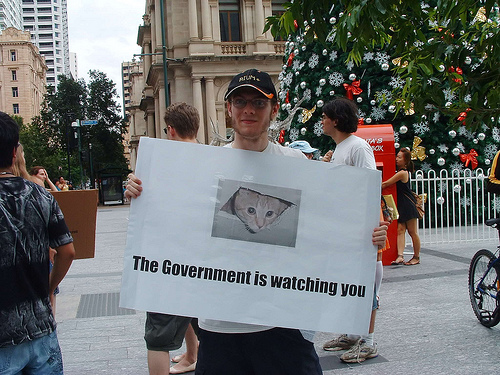Vodafone confirms it will use Interpol filter

Vodafone has confirmed that it will implement the Interpol filter of child-porn sites, and is preparing the necessary infrastructure to have it go live next year.

(The Government is watching you image by RIUM+, CC BY-SA 2.0)
The telecommunications company previously pledged its support for the voluntary filter in July this year, but had not committed to whether it would actually implement it. Now, as first spotted by Delimiter, Vodafone has decided to make the plunge.
During a Senate Standing Committee (PDF) in October, Australian Greens Senator Scott Ludlam clarified the process that ISPs go through when signing on to a voluntary filter. The Australian Federal Police (AFP) makes a section 313 request — a reference to section 313 in the Telecommunications Act that outlines the obligations of carriers and ISPs to assist government agencies — when an ISP indicates that they wish to participate in the Interpol filter, and have in place, or are readying, their technical infrastructure to implement it.
Such requests are indicative of an ISP's involvement in the filter; although Vodafone has stated that it has not yet received a section 313 request, it confirmed that it has a in-principle agreement with the AFP to implement the filter.
"We have had discussions with the AFP, and, as you would expect, VHA [Vodafone] willingly cooperates with law-enforcement agencies to provide necessary assistance based on prescribed processes, including responding to requests under section 313," the company stated.
The company expects that its infrastructure will be ready to roll out the filter sometime next year.
It will join Optus, Telstra (which has already blocked 84,000 requests through its filter) and CyberOne. Ludlam noted that the AFP has issued five section 313 requests to Australian ISPs, meaning that two participating ISPs remain unconfirmed.
The five ISPs don't match the estimated 80 to 90 per cent adoption rate by user base that the Internet Industry Association (IIA) previously forecast in June this year.